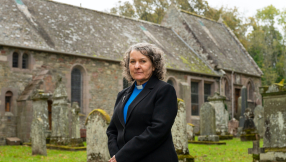The South Korean Constitutional Court decriminalised adultery last week after 62 years of the act being punishable by two years in prison.
The Court found that the country's morals had changed since the law was enacted in 1953, and that the rights of the individual supercede any moral imposition by the government.
"It should be left to the free will and love of people to decide whether to maintain marriage, and the matter should not be externally forced through a criminal code," the judges said in a statement, according to The New York Times.
"The law is unconstitutional," Justice Seo Ki-seok added, "as it infringes people's right to make their own decisions on sex and secrecy and freedom of their private life, violating the principle banning excessive enforcement under the constitution."
The ruling was 7-2 in favour of decriminalisation.
The law received increased attention in 2008, when actress Ok So-ri admitted to an affair but received a suspended sentence after petitioning the court. Her husband had demanded she receive the maximum sentence.
The Washington Post reported that over 50,000 South Koreans have been indicted for adultery over the past six decades. The thousands convicted in the last six years are eligible for retrials under South Korean law.
The South Korean sex industry makes up four per cent of the country's gross domestic product, and divorces are increasingly common in the conservative country.
The birth rate in South Korea is also one of the lowest in the world, with the average woman bearing 1.2 children. The birth rate in the UK, by contrast, is 1.9 children.
The Guardian reported that since the decriminalisation, the stock value of Unidus -- the country's largest condom manufacturer - has increased by 15 per cent.













